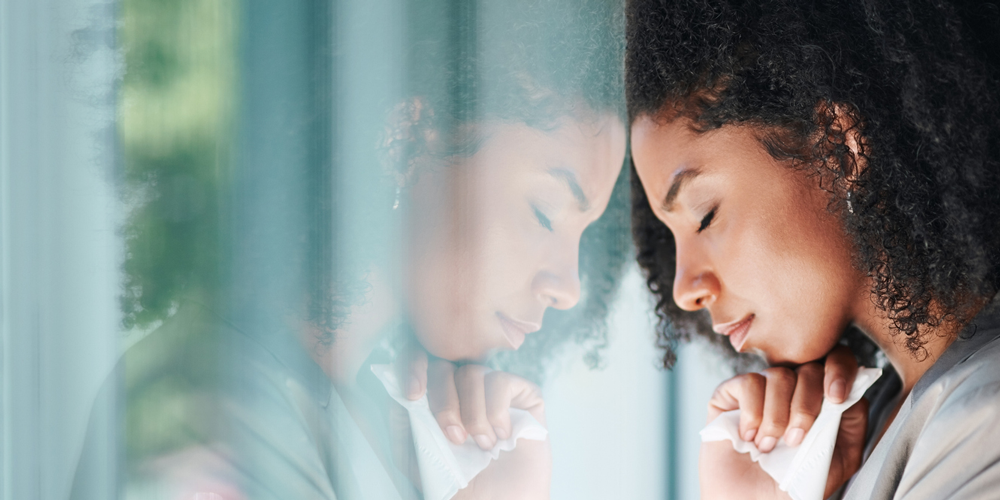
by Peggy Hatton | Oct 4, 2022 | Commentary, Headline News, Prayers & Devotionals |

In the journey of my life, yesterday a chapter ended. Thank goodness, I didn’t get stuck but moved past my circumstances, when I was diagnosed with my first brain tumor.
I say first because there was a third time around. And each time, it was a severe blow that overpowered me and almost put me under. I have a history of brain tumors (Meningioma). Therefore, I want to share what God has done in my life, God brought me through it all.
I was a single woman working in the medical field with no expectations of bad news. I started having severe headaches, and knew something wasn’t right. A MRI was ordered and my peaceful life was impacted significantly when the doctor called me at work and gave me the results. My physician asked: “is this Peggy Hatton?” I said yes. He said “your “MRI” results revealed a large brain tumor.” I said, “what?!” I cried, wanting to scream, but had to hold it in because I was at work.
And the first thing that came to my mind was, “I’m going to die.” I notified the supervisor of my situation and let them know that I had to leave. I wasn’t any good after hearing this. I had to call my cousin to pick me up because I couldn’t drive either. I was weeping non-stop. I cried unstoppably until my face was swollen. I knew God was the only one who could help me and I prayed and talked to him saying, “Why Me Lord?” I felt the Holy Spirit respond: “Peggy, why not you? Don’t be discouraged, I will always be with you.”
God comforted me and I moved forward and had the first brain tumor surgically removed. Although I woke up temporarily blind, the surgery was successful. I was still in ICU when an optometrist came and worked on my eyes. I was so scared. Later on that day, my vision returned.
After all of the procedures, my eyes have never been the same. Today, I use numerous eye drops and visit an optometrist regularly. I accepted what I had no control over.
Years later, I started having severe headaches again and knew the brain tumor had returned. Another MRI was taken and showed it had returned with a vengeance, it was brain cancer. I prayed and put it in God’s mighty hands.
I had radiation treatment for brain cancer. Today, I am still having more treatments and is scheduled to graduated soon. None of this was easy and if I didn’t have a mustard seed of faith in God, I wouldn’t have made it.
I interacted with cancer patients and we all need encouragement, inspiration, and love. This is whyI am sharing my story to uplift others in their battles.
This illness shattered my life, caused me to become disabled, and live less fortunately financially. However, God has truly blessed me and I thank him for placing supportive saints around me.
During all my trials and tribulations, real compassionate people reached out through texts, calls, and visits. I thank God for his mercy, grace, and his angels. act of kindness and thoughtfulness was greatly appreciated.
When going through battles, everyone needs somebody. It helps so much just knowing other people care and you are not going through this alone. There is always someone in circumstances worse than yours. No matter how tough this battle has been. I never lost my faith in God, therefore I never lost a battle. I kept my head up, wiped tears, and kept moving.
Through it all, as a wounded soldier, God gave me peace that passes all understanding.
by Candace Howze, Urban Faith Contributing Writer | Oct 20, 2016 | Headline News |
Breast cancer is often associated with older women. However, young women are not exempt.
Although October is Breast Cancer Awareness Month, an annual campaign to raise awareness of the disease, many women still take their health for granted, particularly millennials. However, breast cancer, a form of cancer that originates in breast tissue, is the most common cancer among women worldwide.
In fact, according to the National Breast Cancer Foundation, 1 in 8 American women who reach the age of 80 will be diagnosed in their lifetime. Each year, over 246,000 women will be diagnosed; that’s one woman every 2 minutes. Roughly 25,000 patients under the age of 45 will be diagnosed this year alone, which includes millennials, the largest generation since baby boomers. Millennials were born between the early 1980s and late 1990s, making them between ages 18 and 35 now.

Christina Best, 24
Christina Best, a 24-year-old North Carolina schoolteacher, is one of those young people. She was recently confronted with some of the toughest news of her life. Earlier this year, Christina discovered some irregularities during a regular self-exam, then visited a doctor who broke the news: She had Stage 2 breast cancer.
“The most challenging thing for me was the period of not knowing after my initial diagnosis,” she says. “I had a lot of plans for the summer that I eventually had to cancel. I experienced a lot of anxiety by not knowing my stage of cancer initially and what my treatment plan was.”
During the summer, Christiana underwent surgery to remove her cancer and discovered that it hadn’t spread. She’s currently undergoing chemotherapy, which has presented its own challenges: losing her hair, living at home again for the first time since leaving for college and being on extended sick leave, which has given her more free time than she’s had in years.
“What has helped are the small goals I make for myself – walking around the neighborhood every day for exercise or going to see friends when I feel up to it. Additionally, my post-treatment plans of [going back to school to pursue] a third degree gives me a lot of motivation to finish my treatment and get on with my life and goals.”
For African-American millennials, the risk is among the highest of all diagnosed cases among women of all ethnic backgrounds. More Black women under the age of 45 are diagnosed than their Caucasian peers. While genetics and first-degree relatives (mother, sister, daughter) can influence a woman’s chances, 85 percent of women with breast cancer have no family history. And awareness about the disease in younger women is still hard to find. Christina wrote a blog post about walking into the cancer treatment center to find women much older than her who seemed surprised to see her there.
“I personally don’t know any millennials with breast cancer. It’s certainly not common at this younger age, but there is a growing presence and, thankfully, the Internet is allowing us to connect with each other and share our experiences.”
Painted Pink  is one of those organizations helping to raise awareness of breast cancer among millennials. With a mission to “Educate, Support, Empower and Survive,” the Atlanta-based group focuses on preventative measures and funding for cancer patients. Founder Ann-Marie Appiah is a millennial and survivor that hosts an annual luncheon in Atlanta during Breast Cancer Awareness Month.
is one of those organizations helping to raise awareness of breast cancer among millennials. With a mission to “Educate, Support, Empower and Survive,” the Atlanta-based group focuses on preventative measures and funding for cancer patients. Founder Ann-Marie Appiah is a millennial and survivor that hosts an annual luncheon in Atlanta during Breast Cancer Awareness Month.
Christina emphasizes living a healthy life, knowing your body, maintaining regular self-exams and doctor’s appointments and being proactive about your health. While there is no single cause for breast cancer, doctors say that exercising, eating healthy, not smoking, taking caution around chemicals, and managing alcohol consumption go a long way to giving you the best shot at a cancer-free life.
If you do know someone who was recently diagnosed, Christina says to “be present and treat the person regularly. Also, listen to what it is they want and need but give them the time to know what it is they want or need. If they want to vent, let them do so. If they want encouragement, give them encouragement. If they want to be happy, let them be happy.”
Another is one of the biggest tools that people like Appiah and Christina credit for getting them through their diagnosis and treatment. “Faith has been the center of my treatment,” Christina explains. “I am naturally an optimistic person, but keeping my faith has been essential to peace and healing. I know that everything I go through in life is for greater, and I have much to offer through the blessings that I am given.”




